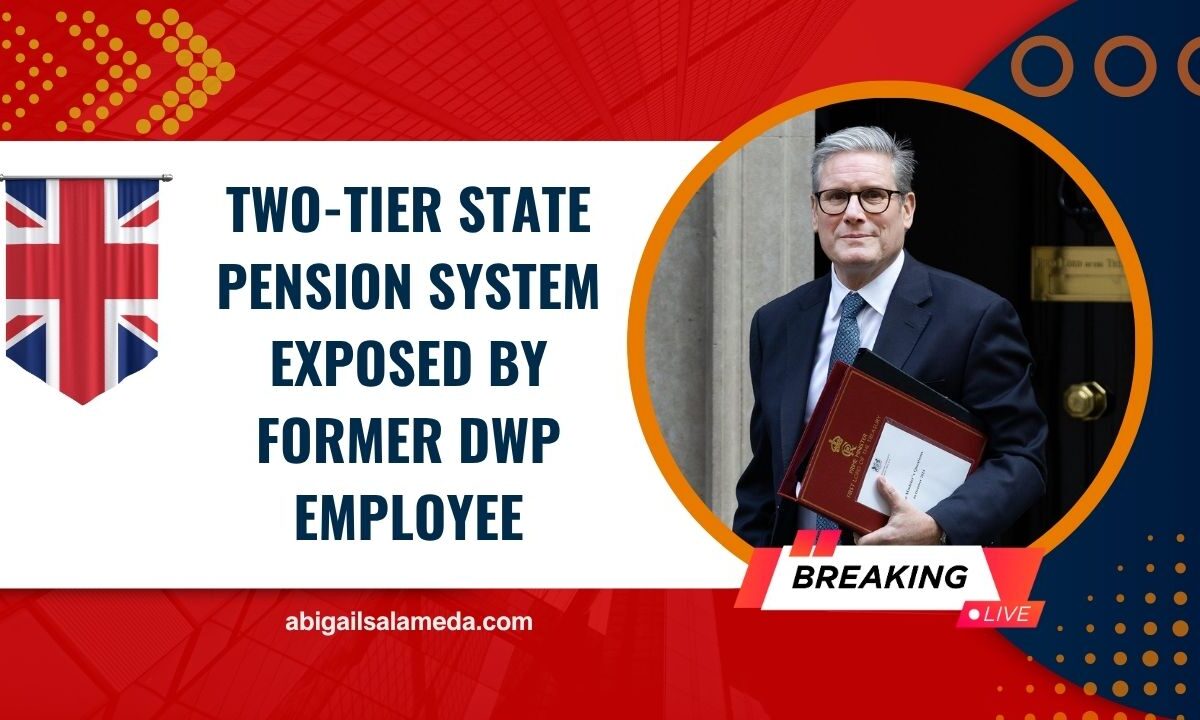A former Department for Work and Pensions (DWP) employee, Sandra Wrench, has issued a stark warning about the growing disparity between New and Basic State Pension recipients.
According to her, the UK’s pension system is now operating under a “two-tier” structure—leaving many older pensioners at a disadvantage when it comes to annual increases.
Wrench, who served the DWP for over 42 years, claims that although the Triple Lock guarantee boosts the core pension, millions are missing out on fair uprating of additional elements that form part of their total State Pension income.
State Pension Snapshot: Who Gets What?
According to the latest government figures:
- There are 13 million people of State Pension age in Great Britain
- 66% receive the Basic (Old) State Pension
- Only 34% receive the New State Pension
This alone shows that the majority of pensioners are still under the old system, which involves multiple complex components.
Understanding the Triple Lock — And Its Limits
The Triple Lock ensures annual increases to the New and Basic State Pension based on the highest of:
- Average earnings growth (May to July)
- CPI inflation (year to September)
- A minimum of 2.5%
This year, the Triple Lock uplift is 4.1%, benefiting recipients of the New State Pension and Basic State Pension. However, Sandra Wrench warns that additional elements like:
- Graduated Pension (1961–1975)
- Additional Pension (SERPS / S2P)
- Deferred pension increments
- Protected rights from 2016 transition
are not included in the Triple Lock and are only increased by the CPI inflation rate.
Key Pension Payment Components
| Pension Element | Covered by Triple Lock? | Uprated by CPI Only? |
|---|---|---|
| Basic State Pension | Yes | No |
| New State Pension | Yes | No |
| Additional Pension (SERPS/S2P) | No | Yes |
| Graduated Pension | No | Yes |
| Deferred Pension Increments | No | Yes |
| Protected Transitional Rights (pre-2016) | No | Yes |
Sandra Wrench’s Warning
Mrs. Wrench expressed concern that many older pensioners are unaware that only the core pension amount is covered by the Triple Lock.
“The Triple Lock guarantee only covers the basic or new full State Pension. It does not apply to other components such as Additional Pension or Graduated Pension, which are important parts of many older pensioners’ income,” she said.
Wrench fears this creates a growing gap between retirees who qualify for the full New State Pension, and those who accumulated entitlements under older systems.
As a result, two pensioners with similar work histories may receive different increases, depending on when they retired and which pension system they fall under.
Implications for Millions of Pensioners
This structure means that older pensioners—those who retired before April 6, 2016—are likely to miss out on full Triple Lock benefits. Even if their total pension income is higher, it may not grow as fast year-on-year, especially during times of high inflation.
This concern is particularly relevant in 2025, as cost-of-living pressures continue to mount. Pensioners relying on additional entitlements may find that only a portion of their income rises, while other parts lag behind.
The warning from a seasoned former DWP worker exposes a critical flaw in the UK’s State Pension uprating system—a two-tier approach that could see millions of older pensioners fall behind.
While the Triple Lock provides a much-needed safeguard for core pension payments, its exclusion of additional pension elements disproportionately impacts those who retired under the legacy system.
As the UK continues to navigate economic challenges, greater transparency and reform may be needed to ensure fairness and parity for all pensioners, regardless of when they retired.
FAQs
What is the two-tier State Pension system?
It refers to the growing divide between those on the New State Pension and those still receiving the Basic State Pension with additional elements, many of which do not benefit from the Triple Lock.
Are all parts of the State Pension increased equally each year?
No. Only the Basic and New State Pension are covered by the Triple Lock. Other parts like Additional and Graduated Pensions are uprated by CPI inflation only.
Who is most affected by this gap in uprating?
Older pensioners who retired before 2016, especially those with Additional Pension rights, may see slower income growth over time.




